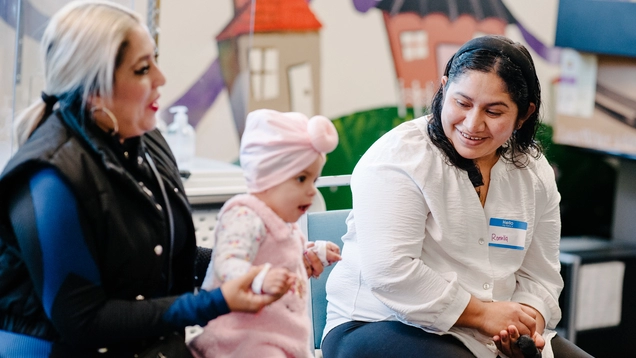
Participants of the Basic Income Guaranteed: Los Angeles Economic Assistance Pilot, known as BIG:LEAP, received the final monthly payment of the year-long program on March 25, bringing the payment portion of a program that served more than 3,200 individuals and distributed more than $38.4 million to an end.
Administered by the City of Los Angeles Community Investment For Families Department (CIFD), BIG:LEAP provided participants with $1,000 per month, allowing them to catch up on rent and bills, pay for medical expenses, invest in their futures by paying for school tuition or starting small businesses, and pay for new clothes and shoes for their children.
"Our Guaranteed Income pilot presented the opportunity to support a simple idea - that families experiencing poverty should be trusted to spend money as they see fit," CIFD General Manager Abigail R. Marquez said. "The program was incredibly impactful for Angelenos, but we know more resources are needed to sufficiently support families long term, and we're committed to finding ways to advance programs and policies that disrupt the cycle of generational poverty."
At the direction of the Mayor and City Council, CIFD launched BIG:LEAP in late 2021. BIG:LEAP's research partner, the University of Pennsylvania's Center for Guaranteed Income Research (CGIR), randomly selected the aforementioned 3,200 participants from over 50,000 applications, and participants received unrestricted monthly payments via a physical debit card managed by MoCaFi. Additionally, 3,800 applicants were invited to take part in recurring research surveys, without receiving the monthly disbursement. Both the Treatment and Control groups are administered surveys every six months to measure various aspects of their wellbeing, including mental health, food and housing security, employment, homelessness, parenting, family dynamics and more. This data will culminate in a final report scheduled for 2024. BIG:LEAP has also partnered with University of Southern California to inform the debate with scientific data that demonstrates real-world impact.
The application was open online from October 29 - November 7, 2021, and enrollment appointments took place between January and April 2022 to successfully fill all available slots.
To be eligible for BIG:LEAP, participants had to reside in the City of Los Angeles, be 18 years or older, have an income below the federal poverty level with at least one dependent or be pregnant, and have suffered economic hardship as a result of the pandemic. In Los Angeles County, 14.2 percent of residents live below the federal poverty line, which in California is defined as having an annual income of $13,590 for a one-person household, $18,310 for two people and $27,750 for a family of four. Of the 1.4 million Angelenos living below the federal poverty line, 419,000 are children under the age of 18.
"I see firsthand how poverty can impact communities and deprive generations of equity," Los Angeles City Councilman Curren D. Price said. "BIG:LEAP, and programs like it, are a critical investment into communities that allow us to uplift families so we can break the multigenerational cycle of poverty in Los Angeles and beyond."
In an effort to create a sense of community around the program, CIFD invited BIG:LEAP participants to share their collective experiences in person on January 28. Storytellers discussed their successes, challenges, and future concerns.
While no single program can reverse decades of economic and racial inequality that marginalizes low-income people of color, BIG:LEAP's efforts have paved the way towards a more equitable and prosperous future. Participants' testimonies include:
This money is paying for my son's childcare so I can go to work and make money for both of us. I'm so thankful;
The extra monthly funds have helped immensely. I used the funds to help with my rent as well as the basic esthetician equipment I needed to start my own business; I am so grateful. My son and I dealt with some periods of homelessness and the funds are helping with more stability.
After March 25, participants will be connected to resources as they are offboarded and the research continues. They will be referred to FamilySource Centers (FSCs) and community partners for resources, including financial coaching, and are encouraged to reach out to CIFD staff should they need help navigating these recommendations.
CIFD is also focused on seeking new investment to run a follow-up Guaranteed Income program to continue helping Angeleno families in need.